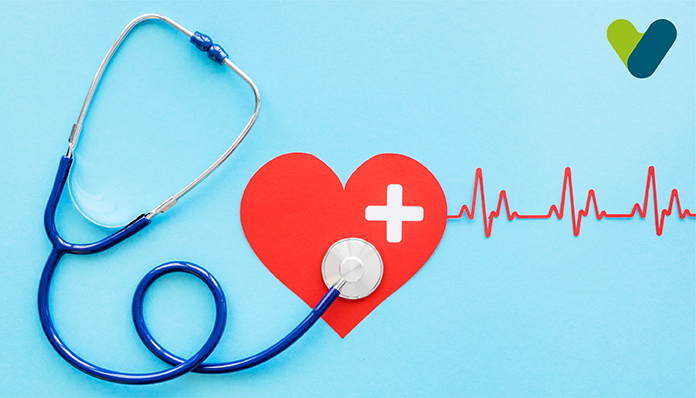After the brain, it is our heart that is considered to be the second most important organ of our body. We all have studied that the main function of our heart is to pump blood throughout the body.
A normal heart beats about 72 times a minute but what if there is an irregularity in the heartbeat? Then, this is a pretty risky and life-threatening condition called atrial fibrillation or AFib.
Due to the sedentary lifestyle and various other factors, more and more people across the globe are suffering from AFib, so one should be aware of the right kind of atrial fibrillation treatment to get relief and save oneself from a heart stroke or heart failure.
Let us learn in-depth about what is atrial fibrillation and what is an effective AFib treatment to get relief from its symptoms?
What is Atrial Fibrillation?
In a layman’s language, atrial fibrillation is a health condition when a person suffers from an irregular heartbeat. What happens exactly in AFib is that the upper chambers called the atria of the heart quiver or beat irregularly. A prolonged AFib may lead to blood clots, which eventually can result in a heart attack and other heart diseases. So, it is important to get a cure for this disease after identifying its symptoms.Atrial Fibrillation Symptoms
Several people don’t realize any symptoms of atrial fibrillation and sometimes think it is due to a workout or movement that their heart is pouncing at a faster speed. On the other hand, some people don’t suffer from atrial fibrillation symptoms regularly, the symptoms come and go and are not persistent. Atrial Fibrillation is not a life-threatening condition in itself, but it may lead to heart attacks, so one should be able to detect its symptoms like:- Shortness of breath
- Fatigue
- Dizziness
- Chest Pain
- Feeling Light Headed
- Weakness
- Difficulty to Exercise
Atrial Fibrillation Causes
Having detected the symptoms of atrial fibrillation is one thing and understanding its underlying causes is another thing. Unless one identifies the real cause of this heart disorder, one won’t be able to figure out the right kind of AFib treatment. So here we are going to acquaint you with some common causes of atrial fibrillation:- Sleep Apnea
- Lung Disease
- High Blood Pressure
- Viral Infection
- Heart Valve Problem
- Defect in Heart
- Heart Attack
- Coronary Artery Disease
- Thyroid Disease
- Heart Surgery
- Cardiomyopathy
- Pericarditis
- Using Certain Medications
Atrial Fibrillation Treatment
Like in any other disease or health disorder, the physician will first try to treat AFib with medications like:1. Rate Control Medications
Medicines like beta-blockers, and calcium channel blockers, are often prescribed to slow down the heart rate of people suffering from atrial fibrillation. These medicines are like Lanoxin, Toprol, and Calan, and they help the ventricles or the lower heart chambers to beat slowly.2. Rhythm Control Medications
Since atrial fibrillation is a health condition where the heart is not beating in the normal rhythm, therefore sometimes the doctor may prescribe you antiarrhythmic drugs that help to normalize the heart's sinus rhythm. These are medicines like Tikosyn, Tambocor, Betapace, and Pronestyl.3. Anticoagulant Medications
The third type of medicine prescribed as part of atrial fibrillation treatment is an anticoagulant that prevents the risk of forming blood clots and strokes. These are medicines like Coumadin and Warfarin. Again, these medicines don’t treat AFib completely but reduce the risk of a heart attack due to AFib.Other Atrial Fibrillation Treatments
When medicines don’t really work, the following treatments are tried to get relief from atrial fibrillation symptoms:1. Pulmonary Vein Ablation
Also known as, PVAI, this treatment is a perfect treatment option for those who can’t somehow tolerate the medications. This treatment is given to the place where the atrial fibrillation begins, which is the pulmonary vein.2. Electrical Cardioversion
This is a treatment that resets the heartbeats and restores the normal heart rhythm so that medications are effective for the person. Although the effect of this treatment is not permanent, it helps to synchronize the normal heartbeat for a while.3. Ablation of the AV Node
In this treatment, catheters are slowly inserted into the veins and moved towards the heart to prevent rapid heartbeat signals from the atria to the ventricles. Again, this treatment is also not a permanent cure for AFib, but it does reduce the risk of a heart stroke. This treatment is rarely used for this condition, because the other two treatments mentioned earlier are more effective.4. Permanent Pacemaker
Another alternative treatment for AFib is by placing a permanent pacemaker that helps regulate the heartbeat. It is a part of a device therapy that helps manage the arrhythmias and optimize the normal heart-rate functions.5. Surgical Treatments
If neither the medications, nor the device therapy, and other treatments work to get any relief from atrial fibrillation, then the doctor may prescribe you surgical procedures like the maze procedure. In a maze procedure, incisions are done in the defined pathways to help the atria beat normally to prevent atrial fibrillation.Read More: Heart Arrhythmia Symptoms: Signs and Treatment
Prevention Tips
Besides, the above-mentioned medicines and treatments for atrial fibrillation, indulging in some lifestyle changes can act as great preventive measures against AFib. Let’s have a look at some of the lifestyle changes or preventions that can help improve atrial fibrillation symptoms:- Quit Smoking
- Avoid Heavy Workouts
- Keep Your Blood Pressure Under Control
- Get a Good Night Sleep
- Limit the Intake of Alcohol
- Limit the Intake of Caffeinated Beverages
- Minimal Use of Stimulants
- Maintain a Healthy Weight



